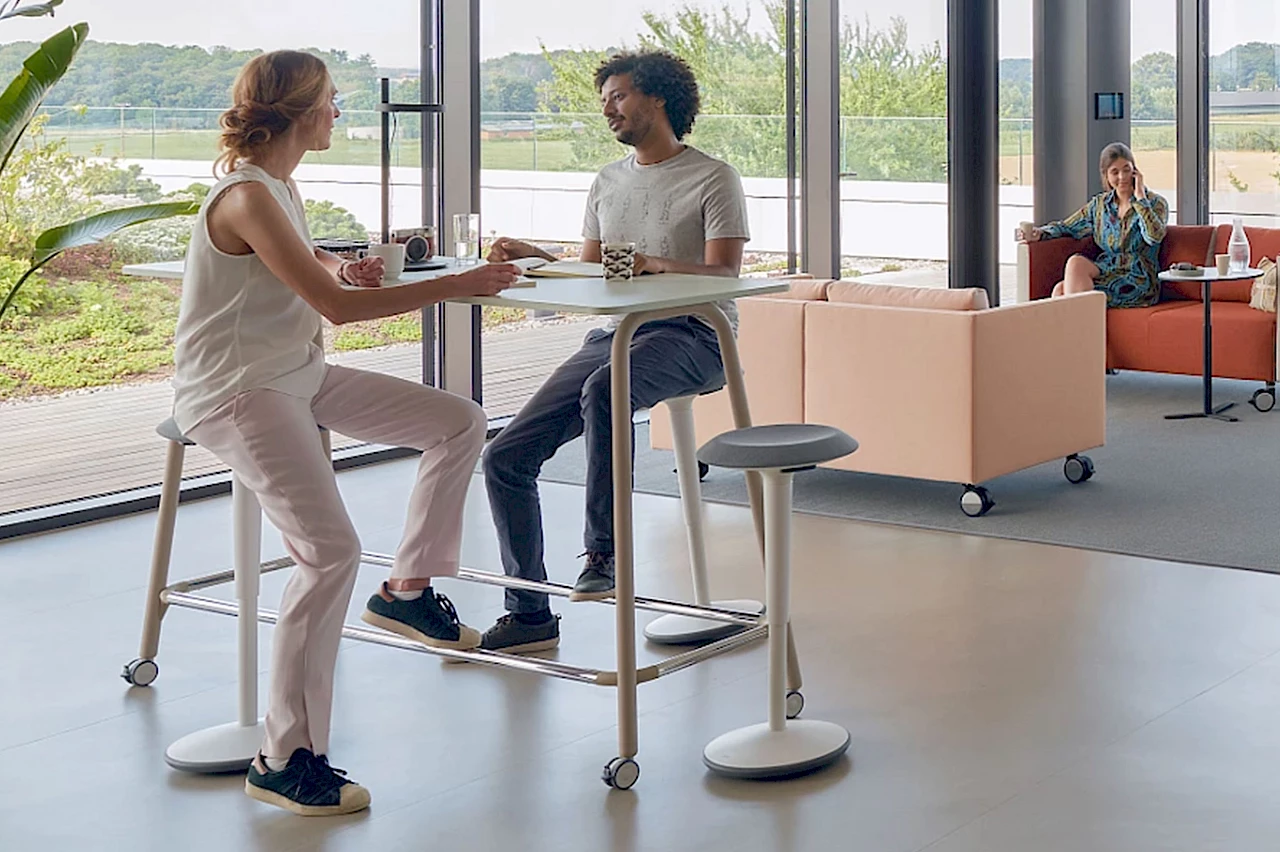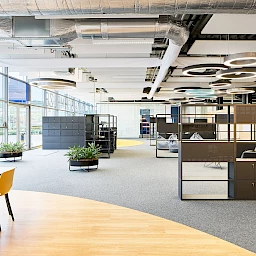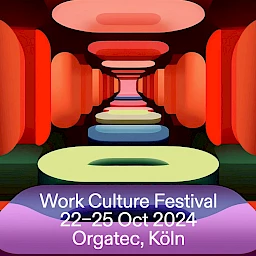In the past, the office was simply a place where you worked, but the transformation of the world of work has challenged this concept — with the result that today people have many new expectations regarding the office. They expect it to be a place for meetings, cooperation, hospitality and learning, a place that provides a good user experience and enables users to experience the corporate culture. But all of these benefits can be had only if the office changes its role. What might the new role of the office look like? And what would this mean for its design and also for the company itself? Let’s take a closer look and start with the facts.
Fact 1: Employees appreciate flexible work models
More and more employees in Germany are working from home. According to the Federal Statistical Office, the number of employees who work only from home has almost quadrupled since the Covid-19 pandemic. In 2022, almost 24.2% of the employed people in Germany worked from home at least occasionally. And 14.7% of them worked from home every day or at least for half of their total working time. The “State of Hybrid Work 2023” survey of 2,000 employees conducted by Owl Labs in cooperation with the market research institute Vitreous World also confirms that a majority of the full-time employees in Germany prefer a flexible choice of places to work and also favour hybrid work (64%). Moreover, 40% of the respondents preferred to have fixed days for working from home. They were followed by the group of respondents who preferred a flexible hybrid solution without any fixed days (24%). The employees’ desire for flexibility is so strong that a third of the respondents said they would be open to a change of jobs if their employer did not permit them to work from home. If that permission were withheld, 7% of the employees would immediately give their employer notice.
Fact 2: Reasons why employees nonetheless don’t want to abandon the office entirely
The forsa survey commissioned in autumn 2023 by the German Interior Business Association (IBA) shows that employees nonetheless have reasons for coming to work in the office. The most important one is their need for direct interaction that generates a genuine feeling of cooperation. 82% of the respondents say that personal contact with their supervisors and colleagues is a key argument for coming to work in the office. In addition, cooperation in the office promotes creativity, vigour and the generation of ideas within the group. Meanwhile, a suitable work environment influences team spirit, the overall atmosphere and the cultivation of networks. The equipment of the workplace itself is also an argument, because for many people the ergonomics of working at home still fall short. As a result, the office has an advantage over other places of work because of the ergonomic design of its office chairs, work tables and technology, as well as acoustics and lighting.
Fact 3: Work itself is changing
Many new buzzwords have entered the world of work in recent years: New Work, hybrid work, user experience, employee experience, employer branding, purpose — to name only the ones that are used most often. The use of digital tools has increased enormously, and as a result work has become much more intense. The stroke rate is significantly higher today than it was in the past. At the same time, due to the transformation of the world of work, learned material is growing outdated more rapidly and it’s becoming harder to stay abreast of current developments. Many of the strategies people used in the past to achieve their objectives must now be unlearned. This transformation is very demanding, not only for each respective company as a whole but also for its employees.
What does this mean for the new role of the office?
The outlines of the new role of the office can already be discerned today, because the transformation of work and of the world of work is already being reflected in the use of physical space:
- user experience
Work is based to a large extent on collaboration. Cooperation, creative freedom and good leadership are the central concepts here. This requires spaces that enable a healthy interplay of performance and creativity, as well as the corresponding user experience — in other words, the employee experience. Space has an effect on people, and it has more power than might appear at first glance. The office can encourage its users to engage in a certain kind of behaviour, support a wide variety of work plans, and offer a special user experience (UX). - New-Learn-spaces
The transformation of work also requires a new kind of interplay between work organisation, learning, culture and infrastructure. Spatial concepts suitable for spontaneous conversations and focused work as well as project work, creative work and teamwork are in demand. Here the office has a clear advantage, because these forms of cooperation are far less efficient when people are doing hybrid work or completely remote work. That was shown by a recent study conducted by the Universities of Pittsburgh and Oxford. - Technology that empowers
Digital technologies are changing the world of work profoundly and at a rapid pace. They are leading to disruptions and new requirements, but also revealing new perspectives. When they are correctly understood and used, they can provide support during daily work, create new spaces for action and expand areas of activity. - enabling to experience corporate culture
The office is the place where employees can experience a company’s corporate culture. Office design can make things visible and emphasise them: shared values, social norms, artifacts and attitudes that influence how the people in an organisation make decisions, act and behave — both within the company and toward the world outside.
In 2024 we’re going to investigate the new role of the office — and this role will also take centre stage at the Work Culture Festival at ORGATEC.
Further information about the Work Culture Festival is available at https://iba.online/festival/.
Cover photo: Sedus




 Jasmin Najiyya
Jasmin Najiyya 

